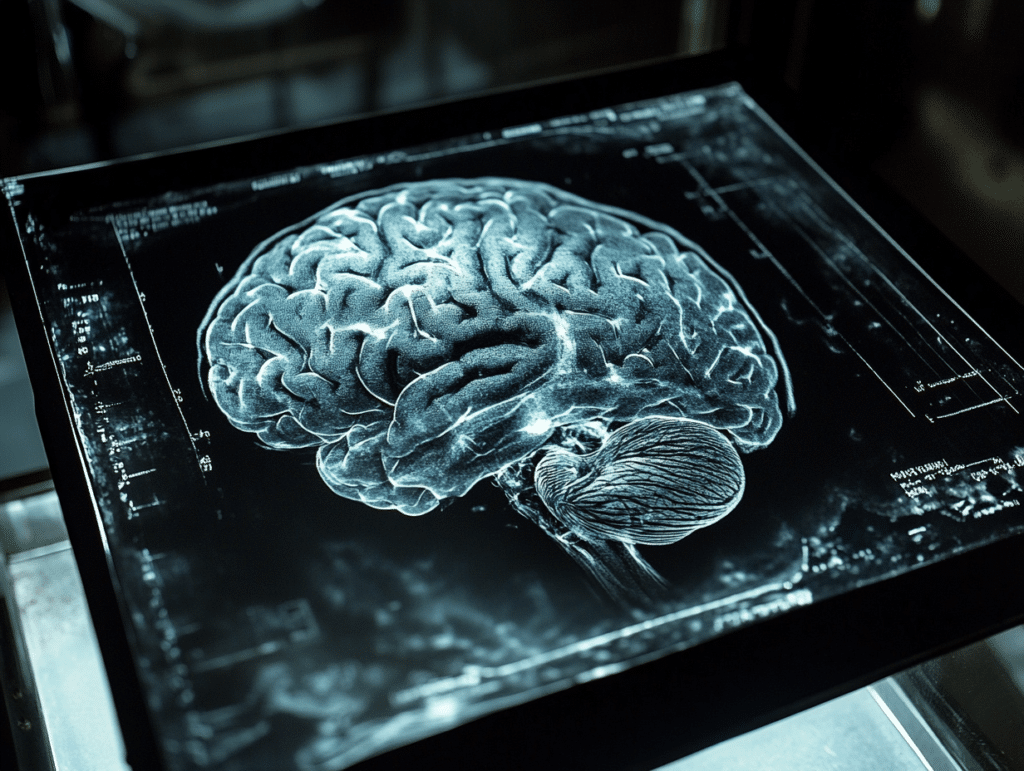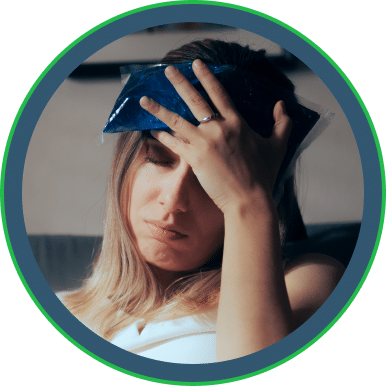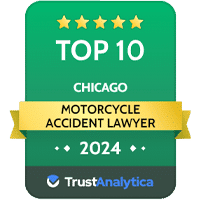Key Takeaways
- Concussion recovery involves six stages: Acute Injury Phase, Physical Rest, Observation Period, Gradual Increase in Activity, Rehabilitation, and Return to Normal Activities.
- Recovery timelines vary significantly based on factors like age, severity of the concussion, and individual health, with some cases requiring extended rehabilitation.
- Professional medical support is essential for effective concussion recovery, including regular monitoring and tailored treatment plans to address symptoms and ensure proper healing.
Your search for help ends here. Let’s get started, for FREE.
Understanding Concussions and Their Impact
Concussions, a type of traumatic brain injury, can greatly disrupt a person’s life. They occur when a sudden impact causes the brain to move rapidly within the skull, damaging brain cells and temporarily impairing brain function. Symptoms vary in severity and duration, highlighting the importance of early recognition and understanding.
Recovery from a concussion is not a one-size-fits-all process. The duration and complexity of recovery depend on various factors, including the severity of the concussion and the presence of any long-lasting symptoms.
This section will provide a foundation for understanding concussions, their causes, and how to recognize their symptoms, setting the stage for a detailed exploration of the six stages of recovery.
What is a Concussion?
A concussion is a mild traumatic brain injury caused by impact, damaging brain cells, often referred to as a head injury. Interestingly, most concussions do not result in loss of consciousness.
This type of brain injury can affect brain function, leading to a variety of symptoms that need to be carefully monitored and managed.
Common Causes of Concussions
Falls, car accidents, sports injuries, physical altercations, and sudden head or body shakes are common causes of concussions. These incidents cause rapid brain movement within the skull, disrupting its function and potentially leading to a concussion.
Understanding these causes can help in both preventing and recognizing concussions when they occur.
Recognizing Concussion Symptoms
Symptoms of concussions vary and may appear immediately or days later. Common indicators include confusion, headaches, dizziness, blurred vision, memory loss, sensitivity to light or sound, and nausea. Monitoring these symptoms closely is essential as they can significantly impact daily functioning and require proper management.
In addition to these initial symptoms, individuals may experience difficulties with balance, coordination, and an unsteady gait. Visual symptoms such as blurred vision and trouble focusing are also common. Recognizing these symptoms early and seeking timely concussion treatment can help mitigate the long-term effects and expedite the recovery process.

Suffered a Traumatic Brain Injury?
The Six Stages of Concussion Recovery
Recovering from a concussion involves navigating through six distinct stages, each with its own set of challenges and requirements. These stages are: Acute Injury Phase, Physical Rest and Monitoring, Observation Period, Gradual Increase in Activity, Rehabilitation and Therapy, and Return to Normal Activities. Understanding these stages can help both patients and caregivers manage the recovery process more effectively and ensure a full recovery.
Each stage is important, from initial rest and symptom monitoring to the gradual reintroduction of activities and comprehensive rehabilitation. Sufficient brain rest in the early stages is key to reducing recovery time and avoiding prolonged recovery.
Professional oversight throughout these stages is essential to ensure a safe and effective return to normal activities.
Stage 1: Acute Injury Phase
The first stage of concussion recovery, known as the Acute Injury Phase, lasts up to 72 hours following the injury. During this period, the primary focus is on rest and minimizing physical and mental strain to allow the brain to begin healing. Activities that require significant mental effort, such as screen time and strenuous physical activities, should be limited to prevent exacerbating symptoms.
Monitoring symptoms during this acute phase helps identify any immediate concerns needing medical attention. The first 24-72 hours are critical for setting the foundation for the rest of the recovery process, so prioritizing rest and symptom management is crucial.
Stage 2: Physical Rest and Monitoring
Physical rest during the first week post-concussion is vital for managing symptoms and preventing prolonged recovery. This stage involves rest and supervision, ensuring symptoms are managed and concerns promptly reported to a healthcare provider. Adequate sleep and a consistent sleep schedule are also crucial for healing.
The severity of the concussion often dictates the length and complexity of this recovery phase. Managing symptoms, potentially with medication, and ensuring proper rest can help patients return to normal activities within weeks. Regular check-ins with a doctor are essential for tracking progress and adjusting the concussion recovery concussions plan.
Stage 3: Observation Period
The observation period is vital for assessing recovery progress and adjusting the treatment plan as needed. Regular follow-ups with healthcare providers ensure recovery remains on track and any emerging symptoms are addressed.
Younger individuals, due to ongoing brain development, typically require more time to recover fully.
Stage 4: Gradual Increase in Activity
As symptoms subside, gradually reintroducing activities becomes possible. This stage involves carefully monitoring symptoms and progress to determine when and how to increase activity levels. Low-impact exercises and light physical activities may be recommended, but overexertion should be avoided to prevent setbacks.
Doctors often recommend a personalized approach, considering the patient’s unique symptoms and progress. Activities should be reintroduced slowly and incrementally to avoid overwhelming the individual and to promptly address any resurgence of symptoms.
Stage 5: Rehabilitation and Therapy
Rehabilitation and therapy are crucial, especially for those with persistent symptoms. This stage may include tailored therapies like cognitive rehabilitation, memory exercises, and physical therapy. Consistency in attending therapy sessions and active participation are key to progress and recovery.
Experiencing symptoms after rehabilitation is not a setback but a normal part of recovery. Real-world situations often test the effectiveness of rehabilitation, making continued therapy essential for complete recovery. Following the treatment plan and maintaining regular therapy sessions significantly enhances healing.
Stage 6: Return to Normal Activities
The final stage involves a gradual return to normal activities, with careful monitoring to avoid overexertion. As symptoms resolve, individuals can slowly ease back into routines, following medical guidance to prevent exacerbation. If unresolved issues persist, patients may need to return to Stage 4.
During this stage, individuals may engage in additional therapies like neurofeedback, psychotherapy, and cognitive exercises to address lingering issues and ensure full recovery in the healing process. Overexertion should be avoided, and a gradual approach to resuming activities is recommended for a successful return to normalcy.
Factors Affecting Concussion Recovery Time
Several factors influence concussion recovery time, including the severity of the injury, age, and overall health. Each of these factors can significantly impact the duration and complexity of the recovery process, highlighting the importance of understanding their interactions.
Recovery timelines can vary widely, with some individuals healing within a month while others may experience long-term symptoms necessitating rehabilitation. This section will explore these factors in detail, providing insights into how they affect the stages of concussion recovery.
Individual Health and Age
Individual health is crucial in determining the recovery timeline after a concussion. Rest is essential for healing brain tissue and significantly contributes to overall recovery. Depending on factors like age and health, recovery can take up to three months.
Symptoms can sometimes remain hidden and reappear unexpectedly, emphasizing the need for continued vigilance.
Severity of Initial Injury
The severity of the initial injury significantly influences the length and complexity of recovery. Older adults and younger individuals, especially those under 18, generally experience longer recovery periods compared to adults.
The combination of the severity of the concussion and the individual’s age plays a crucial role in determining recovery times.
Previous Concussions
A history of multiple concussions can complicate and extend recovery for subsequent injuries. Individuals with a history of complicated concussions often face extended recovery times, requiring a more comprehensive approach to treatment and rehabilitation.
Coping with Emotional and Cognitive Changes
Concussions can lead to significant emotional and cognitive changes, temporarily affecting brain functionality. These changes can include mood instability, headaches, and cognitive difficulties. Support from family and friends is vital in helping individuals cope and can significantly reduce anxiety and depression during recovery.
Understanding the unique nature of brain injuries can help caregivers provide better support. This section will explore the emotional and cognitive challenges that arise during concussion recovery and provide practical tips for managing them effectively.
Emotional Adjustments

Emotional changes during concussion recovery can include:
- mood swings
- irritability
- anxiety
- depression
Engaging in enjoyable activities and physical activity daily can help improve mood and emotional health during recovery.
Establishing a daily routine can aid individuals in managing emotional changes by providing structure.
It is essential to discuss emotional changes with a healthcare provider. This can help you access the right resources for support.
Recovering individuals often face particularly challenging emotional states during Stage 4, making a robust support system essential. Recognizing and addressing these emotional changes early can help individuals find relief and improve their overall well-being.
Cognitive Challenges
Cognitive fatigue is common after a concussion and may require specific strategies to manage. Taking frequent breaks and avoiding multitasking can help with concentration problems post-concussion.
Issues with focus, attention, and memory are prevalent cognitive difficulties after a brain injury, requiring targeted cognitive exercises to aid recovery.
Suffered a Concussion?
Importance of Professional Medical Support
Professional medical support is crucial in concussion recovery. Consulting a healthcare provider helps navigate the recovery process effectively. Seeking medical care after a head impact helps document the condition and create a personalized healing strategy.
This section will delve into when to seek medical attention and the role of healthcare providers in the recovery journey.
When to Seek Medical Attention
Seek medical attention immediately if symptoms like prolonged loss of consciousness or worsening headaches occur. Consult a doctor within 1 to 2 days after the injury, regardless of symptom severity.
Follow-ups are crucial as some symptoms may arise days later. Timely medical intervention can significantly impact recovery and prevent further complications.
Role of Healthcare Providers
Healthcare professionals collaborate to create a comprehensive recovery plan involving various specialists. Physical therapists and neurooptometrists, for example, address specific symptoms to ensure holistic recovery.
Neuro optometrists, for example, specifically address visual disturbances that may arise during vision therapy and concussion recovery. This collaborative approach ensures all aspects of the injury are effectively managed.
Tips for Supporting Someone Recovering from a Concussion
Supporting someone recovering from a concussion involves more than understanding physical symptoms; it requires providing emotional and practical support. Accommodations with employers or teachers may be necessary to facilitate recovery. Managing stress and taking time for relaxation are also essential.
This section will offer tips for providing emotional support and assisting with daily tasks.
Providing Emotional Support
Friends and family play a vital role in recovery by providing understanding and support. Caregivers should validate the emotions of concussion patients rather than dismiss them. Recognizing that mood swings and irritability are common helps caregivers respond with empathy.
Offering emotional support involves showing empathy, listening, and regularly checking in on the individual’s well-being.
Assisting with Daily Tasks
Providing tangible support, like helping with chores or errands, can relieve stress for those recovering from a concussion. Creating a quiet space can help manage sensory overload. Helping patients identify their triggers allows caregivers to create a more supportive environment.
Breaking down daily activities into smaller steps can help the recovering individual feel less overwhelmed. Gradually encouraging patients to expand their comfort zone can aid in their recovery.
Frequently Asked Questions
What are the common symptoms of a concussion?
Common symptoms of a concussion are confusion, headache, dizziness, blurred vision, memory loss, sensitivity to light or sound, and nausea. Recognizing these signs is crucial for prompt medical evaluation and care.
How long does it take to recover from a concussion?
Most individuals recover from a concussion within about a month, but recovery time can vary based on factors such as injury severity, age, and overall health. It’s crucial to monitor symptoms and follow medical advice during recovery.
When should I seek medical attention after a concussion?
You should seek immediate medical attention if you experience prolonged loss of consciousness or worsening headaches. Additionally, consulting a doctor within 1 to 2 days after the injury is recommended.
How can I support someone recovering from a concussion?
Supporting someone recovering from a concussion involves providing emotional support, validating their feelings, assisting with daily tasks, and fostering a quiet, calm environment to aid their recovery. Your presence and understanding can make a significant difference in their healing process.
What are the six stages of concussion recovery?
The six stages of concussion recovery are the Acute Injury Phase, Physical Rest and Monitoring, Observation Period, Gradual Increase in Activity, Rehabilitation and Therapy, and Return to Normal Activities. Understanding these stages is crucial for a safe and effective recovery process.












